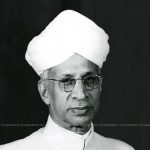On The Verge of Despair
The Indian Vernacular
Hindi, being the mother tongue of 180 million people, the second language of 300 million people and also the 5th largest language of the world, has made us proud all the way so far. That was Hindi, the language, which Mahatma Gandhi used to unite the whole nation and it became the ìLanguage of Unityî for us. It is a historic moment and matter of gratification when the Hindi word “Swadeshi” found mention in the Oxford Dictionary. After being the independent country, it was a goal for the Government of India to standardize the mother tongue, the Hindi language with the grammar and orthography.
Despite of being evolved from Sanskrit, many of Hindi words find their origin in Arabic or Persian. In the Indo-European language group, Hindi belongs to Indo-Aryan branch. Later the Persians and the Mughals influenced the Hindi and made their own alterations to the language along the way. Hindi has not only brought together the large Indian Diaspora living around the world but also has reduced the gap between North and South India and became a “link language”.
It was 14th September 1949 when Hindi was adopted as the Official Language of The Union of India. Later in 1950, the Constitution of India declared Hindi in the Devanagari script as the Official language of India. Different states of India identify their own official languages through legislation. Every year on 14th September Hindi Diwas is celebrated across the country to remember the historic occasion of the Hindi and to show the importance of Hindi language in the country. Hindi Diwas also serves as a patriotic reminder to all Indians and Hindi-speaking populations of their common roots and unity.
India has produced several great Hindi writers who have influenced a whole generation and continue to inspire the coming generations by their writings. Their works vividly portray the picture of Indian society and subtly bring out the ills it has. These writers have also played a progressive part in the reform of Indian society.
- Premchand (1880-1936)
- Maithali Sharan Gupt (1886-1964)
- Jaishankar Prasad (1889-1937)
- Suryakant Tripathi Nirala (1896-1961)
- Mahadevi Verma (1907-1987)
Naresh Saxena, a famous Hindi writer says, Hindi as well as other local languages were only free till 1947, only till India fought the independence war but after 1947, as the Britishers left and country became independent the languages became a slave. Before 1947 there were more probabilities of world level researches as people like C.V. Raman and S.N. Bose, who studies in their mother tongue and even used the same to teach as well. It was due to this they were able to achieve this place in history today. It would be no wrong to say in today’s world whatever education is being provided to the kids of current generation is being provided only in English medium schools, there exist no Hindi medium or Bangla medium schools The condition is such that one of the time magazine surveys shows that 75 % of Indian engineers from the engineering colleges, IITs, do not know their job. In last 3 years, approx. 4.5K students have been selected and been drop out of IIT and NIT and at least 2-3 % are committing suicide.
Uttar Pradesh leads in terms of Indian culture, where people live in harmony despite of religious, linguistic and territorial differences. Rajbhasha Hindi, apart from being the main language of Uttar Pradesh, is prominently important as a link to other Indian languages. Hindi faces a plethora of challenges today with respect to telecommunications, technology and evolving with the times, keeping the core essence of the Indian culture alive as well as create new literature, moving with the times.
Uttar Pradesh has been the epicenter of multifaceted talents of Hindi and this is the reason why Uttar Pradesh Hindi Sansthan has taken up the responsibility to develop literature, proficiency in speaking and expression. It is important that languages keep in tune with the changing times. Uttar Pradesh Hindi Sansthan aims to overcome these roadblocks and has vowed to work tirelessly for the development and spread of Hindi.
Uttar Pradesh Hindi Sansthan has the blessings of Rajarshi Purushottam Das Tandon, Uttar Pradesh Hindi Sansthan was established on 30th December 1976 by merging the erstwhile Hindi Samiti, Uttar Pradesh Hindi Granth Academy and other programmes under the government to develop and promote Hindi literature and language. The couplets that bring out this quality of Hindi have been chosen as the tagline for the Institution:
“Kirati bhaniti bhooti bhali soyi,
sursari sam sab kaha hit hoyi.”
Under the important publication programme of the institution, about 700 publications of excellent quality have been published on various fields such as literature, science, philosophy, political science, history, arts, music, social science, children’s books, technology etc. One of the major aims of the institute is to publish books on various topics of science and technology in Hindi.
Uttar Pradesh Hindi Sansthan has also published many books in remembrance of deceased literary personalities, Apart from this; booklets on Surdas, Tulsidas, Kabir and Ravidas are being also published to keep their memory alive.
On the first floor of the institution building, ‘Acharya Ramchandra Shukla Public Library’ is also situated which has a collection of over fifty thousand titles.
The institution also organizes various prizes, literary programmes, litterateur welfare funds, publishing grants, workshops with other organizations. Under the magazine publishing initiative, a quarterly magazine named ‘Sahitya Bharti’ is being published by the institution. Under the Children’s Literature Promotion programme, a bimonthly magazine, ‘Bachchon ki priya patrika balvani’ is being published, which is constantly revised by inputs and reviews by children and reviewers.
Litterateurs are selected across the country for special services to literature and serving the language and are awarded for the services in their respected fields with Sahitya Bhushan, Kala Bhushan, Lok Bhushan, Vidya Bhushan, Vigyan Bhushan and Patrakarita Bhushan awards. For long-term services to the literature outside India, Pravasi Bhartiya Hindi Bhushan and Hindi Videsh Prasar awards are given. For the writers who join the different cultures and languages of India with their works, are awarded with Sauhadra Samman. Apart from these awards, ‘Harivansh Rai Bachchan yuva geetkar sammanî is awarded from the trust setup by Mr. Abhishek Bachchan for exceptional work in songs/ghazal/chhands and ‘Pandit Badri Prasad Shinglu Smriti Sammanî is awarded from the trust setup by Mrs Swarup Kumari Bakshi for female litterateurs. Along with this, ‘Pandit Krishna Bihar Vajpayee puraskar’ is awarded from the funds provided by Shri Atal Bihari Vajpayee, which is awarded to the student scoring the highest marks in Hindi/Hindi Literature in the High School and Intermediate examination of the Madhyamik Shiksha Parishad, Uttar Pradesh.
Under the present government, 108 of the 111 awards, which were discontinued since many years, have been reinstated. This year, along with the aforementioned awards, a new award, bearing the name of Agradoot Rajarshi Purushottam Das Tandon has been included, bringing the number of awards to 112 .
To encourage literary activities, the institution premises also houses Yashpal auditorium, Premchand Auditorium, Nirala Literary Centre and Auditorium, Muktakash Raidas Manch are present, where various literary activities are organised from time to time.
Acharya Ramchandra Shukla Public Library
Since the foundation of Uttar Pradesh Hindi Sansthan, Acharya Ramchandra Shukla Public Library has been actively taking part in development of Hindi. The mission of the library is to collect important and historical documents and make them accessible to people working for Hindi and other researchers, Acharya Ramchandra Shukla Public Library was opened to the public in 2005 of Hindi.
Events Organised By Uttar Pradesh Hindi Sansthan
Uttar Pradesh Hindi Sansthan promotes Hindi by organizing various events in Lucknow and other cities. It collaborates with other institutes to commemorate important days such as a national conference on ìAdam ki kavita: janruchi aur pathniyeta ka sandarbhî was organised in collaboration with Mahatma Gandhi International Hindi University from 27th January 2014 to 29th January 2014, where discussions on various topics such as ìHindi-Urdu ke milaap se banegi janta ki bhashaî, organised a two-day conference on ìMeera ka kavya aur aaj ka samayî at Rangayan Auditorium, Jawahar Kala Kendra, Jaipur on 15th and 16th February 2014. The quarterly magazine of Uttar Pradesh Hindi Sansthan, ìSahitya Bhartiî was also unveiled at this occasion Uttar Pradesh Hindi Sansthan celebrated Journalism Day in Nirala Sahitya Kendra and Auditorium, Hindi Bhawan, Lucknow on 30th May 2014 by dedicating the seminar to Acharya Mahaveer Prasad Dwivedi.
A nation’s most valuable resource is its young people. Young people represent our national future and embody national prosperity. We will not only be measured by our response to these complex equity issues but will create a future educational landscape that is grounded in equality, justice and liberation. Here are the views what the youth thinks about the day “Hindi Diwas”.
“Today when the world is appreciating the power and knowledge of India through Ayurveda yoga, scientists of other countries study Vedic literature for their researches; Hindi is losing its identity in its own country. The reason for this is, today an atmosphere has been created in which a person who speaks in English is assumed to be more educated and well mannered than the person who is weak in English speaking. Jobs are given to people who have good English speaking skills. Hence the root difference is created from here. We have to change this mindset of society and have to bridge the gap between the two”. – Sanket Chandra Verma
“Angrezi se parhez nahi, par Hindi se dushmani kyun? It does signify our capabilities to know languages other than the mother tongue, but belittling the usage of Hindi, is an act of stupidity and cowardice. Children have to pay fines in case they are found conversing in Hindi. In colleges people holding command over English are given responsibilities, they are the ones who make friends easily, and the ones who cannot, are neglected and more so considered weak. Job interviews also mandate that the candidate should know English and this is what is used to make ground impressions for that candidate by the employer. Although the knowledge of the languages other than Hindi is an important thing to have, but enforcing it in our daily lives shows that we are weak people who feel shame in conversing in our mother tongue and that we can be easily influenced. More than we need has our life started to rely on the usage of English and neglect of Hindi. Problem isn’t with English, problem is with people who look down upon people who converse in Hindi or cannot converse in English. Let’s speak Hindi, without any fear of rejection, or shyness. Consider the irony of it”. – Asif Bin Anees
Happy Hindi Diwas
Akansha
Writer is a student, an aspiring painter & calligrapher
(Published in The Lucknow Observer, Volume 2 Issue 18, Dated 05 September 2015)




